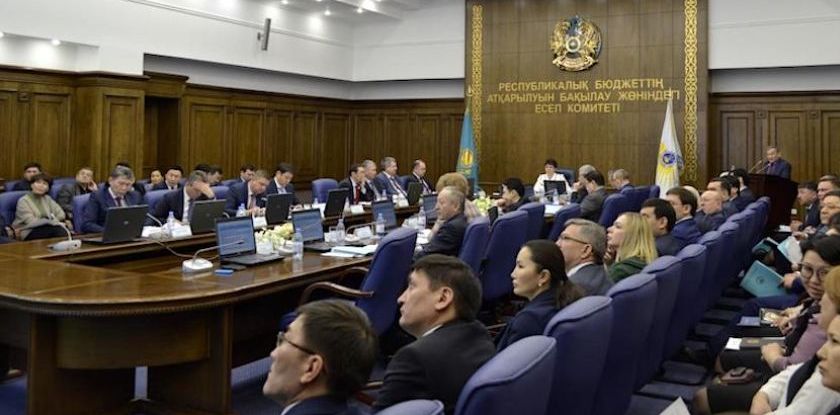On June 15, 2021, the Accounts Committee of the Republic of Kazakhstan finalised the results of the audit of the special economic zones (SEZs). According to the agency’s press-release, the top officials from the Ministry of Industry and Infrastructural Development have taken part in the online meeting. However, the Ministry’s website mentions nothing about it. And this is more than indicative.
The thing is — the SEZ project in Kazakhstan has failed by 90%.
To confirm it, let us quote the aforementioned press-release (text in bold by KZ.expert).
«At the meeting, the participants have finalised the results of the audit of the SEZs’ operations for the period of 2017 — 2020. Just like abroad, the main purpose of creating the special economic zones in certain regions of Kazakhstan was to attract direct investments and to build highly-efficient and competitively viable industries».
«From 2001 to 2019, 14 SEZs had been created in our country: «Astana — New City», «Aktau Seaport», «Park of Innovative Technologies», «Ontystik», «National Industrial Petrochemical Technopark», «Saryarka», «Pavlodar», «East Gate — Khorgos», «Chemical Park Taraz», Astana — Technopolis», «ICBC Khorgos», «TURKISTAN», «Qyzyljar» and «Burabai».
According to the results of the audit, as of January 1, 2021 (cumulative results), the volume of investments in the SEZs constituted 4261.8 bln tenge 29% of which were investments in industries (1236.3 bln tenge).
At the same time, industrial investments in the SEZs on the part of the quasi-governmental sector constituted 807.2 bln tenge or 65,2% of the total volume of investments in the SEZ industrial projects. As for the total volume of foreign investments in the SEZs, in 2020 (cumulative results), it constituted only 8,9% of the total volume of investments (391.3 bln tenge). Therefore, a predominance of state investments over private ones has been registered».
In our opinion, this result is quite predictable. And not only because Kazakhstan is situated at the centre of the Eurasian continent and does not have a direct access to the global market but also due to the fact that Akorda has, yet again, tried to implement an idea borrowed from «another world» without thinking.
Meanwhile, should the Kazakh authorities correctly assess the level of development and the capabilities of their country’s economy together with the interests of prospective foreign investors, they would have, first of all, chosen to create only few special economic zones and, second of all, locate them in an advantageous and convenient way (for prospective foreign investors). In other words, at the Caspian, at the border with Russia and China providing these states with a direct access to the SEZs.
Had they done that, the likelihood of the private capital inflow to the SEZs would be much higher.
But instead, they have created no less than 14 SEZs. Probably, in the hope that they will develop by themselves. Although it is possible that their reasoning was different — to plant the seeds and see what happens. Alas, a bad beginning makes a bad ending.
As a result, the Accounts Committee of the Republic of Kazakhstan has registered (quoting from the press-release) «a predominance of state investments over private ones».
The Committee has also noted that «the existing legal base, the low level of industrial technologies and of the volume of output, the decrease of the investments growth and the structure of the export demonstrate the ineffectiveness of governmental agencies responsible for achieving the main goals of the SEZs creation».
In our opinion, the systemic problems that, according to the Accounts Committee, handicap attracting investments in the SEZs (namely, the low level of infrastructural development, the absence of transparency in the services provision, the high cost of logistics, the limited payback time and so on) is not so much the fault of the SEZs top-management. It is a lack of understanding of how these zones operate and of what the business needs from Kazakhstan’s political leadership.
And since the likelihood of Kazakhstan’s non-resource-based business getting though to Akorda and the Library is not too great (at least, the businesses haven’t been able to do so for the past twenty years), the special economic zones (with rare exceptions) are doomed to continue their trudging along.
The state authorities are unlikely to liquidate the zones because not only will it result in the numerous legal claims but it will, yet again, damage the country’s image in the eyes of foreign and Kazakh investors. On the other hand, the authorities will not be able to increase their own investments amid the coronavirus pandemic and the systemic budget deficit. So, all they will be capable of doing is letting the grass grow under their feet…




